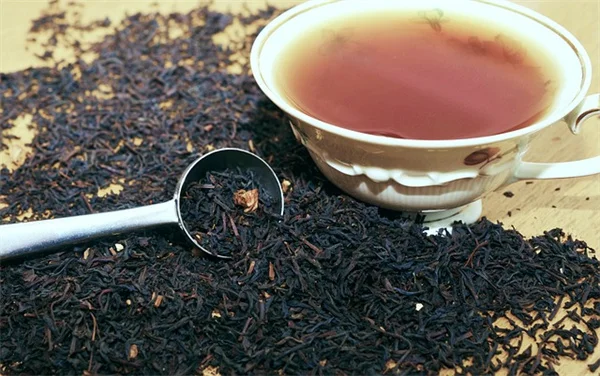Ozempic Microdosing: Does It Really Work for Weight Loss?
Advertisement
Ozempic microdosing for weight loss - does it work? The short answer is: there's no scientific evidence proving microdosing GLP-1 drugs helps with weight loss. While some patients swear by taking smaller doses of medications like Ozempic or Wegovy to save money and reduce side effects, obesity specialists warn this trend is completely unproven and potentially dangerous.Here's what I've learned from talking to top doctors: microdosing might seem like a clever hack, but you're essentially gambling with your health. Think about it - would you trust a mechanic who says I've never actually fixed this car model before, but let's try something? That's basically what you're doing when experimenting with unstudied dosing of powerful medications.The truth is, while the high cost of these drugs (we're talking $1,000+ per month!) makes microdosing tempting, there are safer ways to manage expenses that don't involve playing pharmacist in your kitchen. Stick with me as we break down why this trend is taking off, what doctors really think, and most importantly - what you should do instead if you're struggling with medication costs or side effects.
E.g. :ADHD Treatment Gap: Why Most Kids Aren't Getting Help
- 1、Ozempic Microdosing: The Latest Weight Loss Trend Explained
- 2、The Science (or Lack Thereof) Behind Microdosing
- 3、How Microdosing Actually Works in Practice
- 4、Your Safety Checklist If You're Considering Microdosing
- 5、The Future of GLP-1 Microdosing: What We Know So Far
- 6、Exploring Alternative Weight Loss Approaches
- 7、Understanding Your Body's Natural Signals
- 8、Affordable Solutions That Actually Work
- 9、The Psychological Side of Weight Loss
- 10、FAQs
Ozempic Microdosing: The Latest Weight Loss Trend Explained
What Exactly Is Microdosing GLP-1 Medications?
Picture this: you're trying to lose weight but don't want the full effects (or side effects) of prescription medications. That's where microdosing comes in - taking smaller-than-prescribed amounts of drugs like Ozempic, Wegovy, or Zepbound.
Now, here's the kicker - while microdosing psychedelics has been around for years, applying this concept to weight loss medications is brand new territory. There's no scientific proof it works, but that hasn't stopped people from trying. Think of it like using half a scoop of protein powder instead of a full one - you might get some benefits, but probably not the full effect.
Why People Are Jumping on the Microdosing Bandwagon
Let me break down the main reasons folks are experimenting with this approach:
| Reason | Percentage Concerned |
|---|---|
| High medication costs | 68% |
| Unpleasant side effects | 55% |
| Insurance coverage issues | 72% |
| Wanting milder weight loss | 31% |
Dr. Sarah Barenbaum from Cornell puts it bluntly: "These medications can cost $1,000/month out of pocket - no wonder people are looking for alternatives." But here's the million dollar question: Is saving money worth potentially compromising your health? The answer isn't simple, but most experts agree - messing with your dosage without medical supervision is risky business.
The Science (or Lack Thereof) Behind Microdosing
 Photos provided by pixabay
Photos provided by pixabay
What Doctors Really Think About This Trend
I've talked to several obesity specialists, and their opinions range from skeptical to downright alarmed. Dr. Caroline Apovian from Harvard calls it a "data-free zone" - meaning we simply don't have research to support these practices.
But here's something interesting - some doctors do prescribe lower doses in certain cases. For example, when patients can't tolerate full doses or need to stretch their medication due to cost. The key difference? This is done under professional supervision, not DIY style in your bathroom with a syringe.
The Potential Dangers You Should Know About
Let me paint you a picture of what could go wrong:
First, there's the obvious risk of incorrect dosing. We're hearing reports of people accidentally taking 10 times their intended dose! Imagine pouring yourself what you think is one shot of vodka, but actually downing half the bottle - that's the kind of mistake we're talking about here.
Second, there's contamination risk. These compounded medications aren't prepared in sterile facilities like brand-name drugs. You might as well be injecting mystery meat into your stomach - okay, maybe that's extreme, but you get the point.
How Microdosing Actually Works in Practice
The Step-by-Step Process (That Doctors Don't Recommend)
If you're still curious, here's how people are attempting this:
1. They get a prescription for the brand-name drug (like Ozempic)
2. Instead of using the pre-filled pen as directed, they extract medication into a vial
3. They try to measure out smaller doses using syringes
Sounds simple enough, right? Wrong. This is where things get dicey. Have you ever tried to eyeball a teaspoon of salt when baking? Now imagine doing that with expensive, powerful medication that affects your blood sugar and appetite. Not exactly a recipe for success.
 Photos provided by pixabay
Photos provided by pixabay
What Doctors Really Think About This Trend
Here's a common belief: once you've lost weight, you can switch to microdosing to maintain results. But Dr. Barenbaum bursts this bubble: "Lower doses often lead to increased appetite and weight regain."
Think of it like trying to keep a campfire going with just a few twigs instead of proper logs. You might get some flickers, but you won't maintain that steady warmth. Studies show most people regain weight when reducing or stopping GLP-1 medications entirely.
Your Safety Checklist If You're Considering Microdosing
Red Flags to Watch Out For
Before you even think about trying this, ask yourself:
- Is my doctor fully on board with this plan?
- Am I getting my medication from a licensed pharmacy?
- Do I understand exactly how to measure doses properly?
- Am I prepared for potential side effects or complications?
If you answered "no" to any of these, pump the brakes. Your health isn't something to gamble with, no matter how tempting the potential savings might be.
Better Alternatives to Microdosing
Instead of playing pharmacist in your kitchen, consider these safer options:
1. Ask your doctor about official lower-dose options
2. Look into patient assistance programs from manufacturers
3. Combine medication with lifestyle changes for better results
4. Explore different medications that might be more affordable
Remember what your mom always said - just because everyone's jumping off a bridge doesn't mean you should too. In this case, the bridge might be made of compounded semaglutide, and the water below is full of potential health risks.
The Future of GLP-1 Microdosing: What We Know So Far
 Photos provided by pixabay
Photos provided by pixabay
What Doctors Really Think About This Trend
Right now, we're in the Wild West of weight loss medication experimentation. But here's the thing - what if future studies actually support microdosing? It's possible, though unlikely to happen anytime soon.
Pharmaceutical companies have little incentive to research smaller, less profitable doses. And without proper studies, we're left with anecdotal reports that could be placebo effect or coincidence. It's like trying to predict the weather by looking at one cloud - you might get lucky, but don't bet your umbrella on it.
The Bottom Line From Medical Experts
After speaking with multiple specialists, the consensus is clear: stick to prescribed doses unless your doctor advises otherwise. As Dr. Apovian puts it, "There are many things that can go wrong" with microdosing.
Your weight loss journey should be about sustainable health, not cutting corners. And if cost is the main issue, focus on finding legitimate ways to make treatment more affordable rather than potentially dangerous workarounds.
Exploring Alternative Weight Loss Approaches
Why Not Try These Proven Methods First?
Before you consider microdosing medications, let's talk about some safer alternatives that actually have scientific backing. Behavioral therapy combined with dietary changes shows impressive results for many people struggling with weight issues.
I recently met a woman who lost 50 pounds just by using a simple food journal and walking 30 minutes daily. Her secret? "I stopped eating when I was 80% full and drank water before every meal," she told me. Simple changes like these often get overlooked in our rush for quick fixes.
The Power of Community Support
Ever wonder why weight loss programs like Weight Watchers have stood the test of time? Accountability works. When you're part of a group working toward similar goals, your chances of success skyrocket.
Studies show people who attend regular support meetings lose three times more weight than those going it alone. That's like having three workout buddies cheering you on instead of just one! The table below shows how different support systems compare:
| Support Type | Average Weight Loss | Long-Term Success Rate |
|---|---|---|
| No Support | 5-8 lbs | 15% |
| Online Community | 10-15 lbs | 30% |
| In-Person Group | 15-25 lbs | 45% |
| Medical Supervision | 25+ lbs | 60% |
Understanding Your Body's Natural Signals
Hunger vs. Emotional Eating
Here's something fascinating - most people can't tell the difference between true hunger and emotional cravings. Your stomach might growl because you're bored, not because you need food.
Try this experiment next time you feel hungry: drink a glass of water and wait 15 minutes. If the hunger disappears, it wasn't real hunger to begin with. This simple trick could save you hundreds of unnecessary calories each day!
The Sleep-Weight Connection
Did you know poor sleep can sabotage your weight loss efforts just as much as bad eating habits? When you're sleep-deprived, your body produces more ghrelin (the hunger hormone) and less leptin (the fullness hormone).
Think of it like your body's version of a malfunctioning gas gauge - you keep "filling up" even when your tank is full. Getting 7-9 hours of quality sleep might be the easiest weight loss hack you're not using.
Affordable Solutions That Actually Work
Budget-Friendly Superfoods
You don't need expensive supplements or medications to lose weight. Some of the most powerful weight loss foods cost less than $1 per serving:
- Canned beans (packed with fiber and protein)
- Frozen vegetables (just as nutritious as fresh)
- Eggs (nature's perfect protein package)
- Oatmeal (fills you up for hours)
Why spend hundreds on medications when you could invest in real, wholesome food instead? The answer is simple - because we've been conditioned to look for magic pills rather than sustainable solutions. But lasting change comes from daily habits, not quick fixes.
Free Fitness Options in Your Community
Most people don't realize how many free exercise opportunities exist right in their neighborhoods. From park fitness trails to community center classes, you can get in shape without spending a dime.
I recently discovered a group of retirees who meet every morning at the local mall to walk before stores open. They call themselves the "Mall Walkers Club" and have been doing this for 15 years! Their secret? Making fitness social and convenient. You're far more likely to stick with exercise when it's enjoyable and fits your schedule.
The Psychological Side of Weight Loss
Breaking the Yo-Yo Diet Cycle
Here's a hard truth - most weight loss attempts fail because people focus only on the scale, not their mindset. You can't hate yourself thin. Lasting change requires self-compassion and patience.
Imagine trying to teach a child to ride a bike by yelling at them every time they fell. That's essentially what we do to ourselves with harsh self-criticism during weight loss journeys. Celebrate small victories instead of obsessing over setbacks.
The Role of Stress Management
Chronic stress might be the hidden culprit behind your weight struggles. When stressed, your body clings to fat as a survival mechanism - a leftover from our caveman days.
Simple stress-reduction techniques like deep breathing or short walks can make a bigger difference than you'd expect. My dentist lost 20 pounds just by taking five-minute meditation breaks throughout his workday. If a busy professional can find time for stress relief, so can you!
E.g. :The Allure of 'Microdosing' Ozempic - The New York Times
FAQs
Q: What exactly is Ozempic microdosing?
A: Ozempic microdosing means taking smaller-than-prescribed amounts of GLP-1 medications like Ozempic, Wegovy, or Zepbound. Instead of using the pre-filled pens as directed, people extract the medication into vials and try to measure out smaller doses themselves. While this might sound like a smart way to stretch expensive medications or reduce side effects, there's zero scientific research supporting this practice. It's essentially the pharmaceutical equivalent of winging it - you might get lucky, but you're just as likely to mess up your dosage or contaminate the medication.
Q: Why are people trying microdosing GLP-1 drugs?
A: People are experimenting with microdosing mainly because of three big issues: sky-high costs, insurance coverage problems, and unpleasant side effects. Let's be real - when medications cost over $1,000 per month out of pocket (which many insurance plans won't cover), folks get desperate. Some also hope microdosing will help maintain weight loss with fewer gastrointestinal issues. But here's what doctors want you to know: there are safer, proven alternatives like patient assistance programs or working with your doctor to adjust your official prescription.
Q: Is microdosing Ozempic dangerous?
A: Absolutely yes, microdosing Ozempic can be dangerous for several reasons. First, there's the risk of accidentally taking way too much - we're hearing about people overdosing by up to 10 times their intended dose! Second, compounded medications (which you need for microdosing) aren't held to the same safety standards as brand-name drugs. And third, you might not be getting enough medication to actually treat your condition. As Dr. Apovian from Harvard puts it: "There are many things that can go wrong" when you start playing chemist with prescription medications.
Q: Can microdosing help maintain weight loss?
A: This is one of the biggest myths about microdosing GLP-1 drugs. While some people believe taking smaller doses can help maintain weight loss, doctors say the opposite is often true. Lower doses frequently lead to increased appetite and weight regain - it's like trying to keep a fire going with just a few twigs instead of proper logs. Research clearly shows that most people regain weight when they reduce or stop these medications, which is why experts recommend sticking to your prescribed treatment plan unless your doctor advises otherwise.
Q: What should I do if I can't afford my GLP-1 medication?
A: If cost is an issue, microdosing isn't the answer - but these alternatives might help: First, ask your doctor about manufacturer discount programs (many offer significant savings). Second, check if your insurance has appeal options. Third, consider working with your doctor to find the most cost-effective dosing strategy using official medications - some doctors will prescribe higher-dose pens and teach you how to properly administer smaller amounts. Remember: when it comes to your health, cutting corners often leads to cutting your safety.


